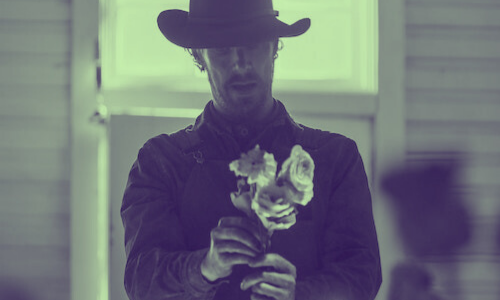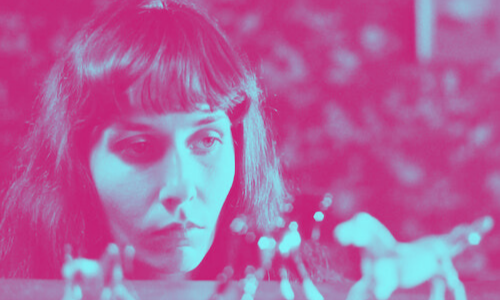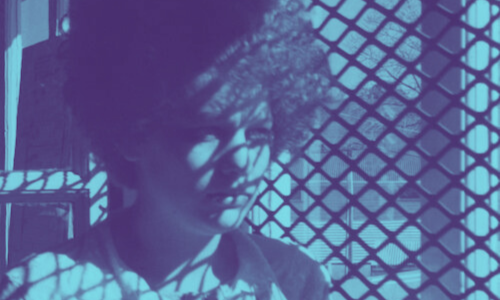Filmography Worship: Ranking Every Jane Campion Film
Written by Andreas Babiolakis
Filmography Worship is a series where we review every single feature of filmmakers that have made our Wall of Fame
A mogul of independent cinema. The master of period pieces. A dominant force on screens big and small. Multiple time Academy Award winner. First of only two women to win the Palme d’Or. Jane Campion is an unparalleled auteur in cinema who has been selective with her projects over her over forty years behind the camera (short films included). No matter what kind of story she chooses to tell, Campion brings a singular whimsy and child-like imagination to all of her features, either through one-off cutaways that pull you out of a film (as if you’re aware you’re reading a storybook or diving into one’s creative thoughts) or via rustic, nostalgic aesthetics. Campion is a studier of history, culture, and society, and all of her films contain intricate details that transport you to the time and place of her narratives (no matter the feature). She also almost always has a lead character that challenges preconceived notions of women and masculinity, so even her more questionable films have noble intentions in them. There really aren’t any films that feel like hers: documentative in accuracy yet explorative in artistry. With eight feature films under her belt by the time this article is written, it feels appropriate to dive into the filmography of one of contemporary cinema’s most fascinating minds. Here are the feature films of Jane Campion ranked from worst to best.
8. In The cut
The only Jane Campion film I will likely never watch again is In the Cut: a decent reimagining of the mystery thriller genre that sadly winds up feeling like an absolute chore. I respect this film in a number of ways because of Campion’s subversion of the male gaze in a typically macho, gritty genre, but that only gets the film so far. So does the second twist that is savoured for after the more obvious turn in the third act: this spices In the Cut up a little bit to the point of feeling worthwhile. Otherwise, I find this film far too lethargic and dull, which is unfortunate given the ideas that Campion puts forth in this psychological experience. Despite the occasional flourishes, In the Cut is dreary, repetitive, and monotonous. It’s an okay experiment but not really a good film overall.
7. Holy Smoke!
Despite being Jane Campion’s wonkiest film (intentionally, it seems), Holy Smoke! actually mostly works until its final act. The strange dichotomy created between Kate Winslet and Harvey Keitel’s characters — a cult member and a de-programmer that fall for each other — is so fascinating to watch, and Campion’s more outrageous directorial decisions make this feel like a nineties fever dream: of its time, yet also impossible to ignore in the present day. Unfortunately, despite all of the screwball-inspired comedy and the vibrancy the film boasts, it is that ending that feels like such a misfire that it sours a film I would be running to defend otherwise. Nonetheless, I feel like Holy Smoke! is misunderstood and unique enough to warrant a watch, even if purely for its bizarre chemistry and its nostalgic charm.
6. The Portrait of a Lady
A film I will run to defend, however, is The Portrait of a Lady: a feature film I feel like has aged quite well and deserves a reevaluation. Perhaps it is the lengthy runtime and wandering narrative style that put viewers off. Admittedly, I haven’t read Henry James’ novel of the same name, and I’ve heard that Campion’s film deviates from the original contexts quite a bit, so that is likely a reason why The Portrait of a Lady got a mediocre reception when it first came out. The film continues to feel under-seen. I read the film as a dazzling allegory of the female experience in the eyes of many men all surrounding Nicole Kidman’s Isabel Archer. It’s not about who Archer will wind up with (or if anyone at all): it’s about the message surrounding society’s expectation of women, particularly through a modern lens. It may not be a perfect film, but I really like The Portrait of a Lady and I think Campion’s feminist commentary here deserves to be witnessed.
5. Bright Star
Considered a comeback for Jane Campion (it was her best received film since The Piano, which was released over fifteen years prior), Bright Star is a sublime tribute to the legacy of poet John Keats. Told in the passive-textured style that Campion would be known for in the twenty first century (particularly on her acclaimed series Top of the Lake: a mystery narrative done far better than In the Cut, I might add), we follow Keats and his romance with muse Fanny Brawne. What I love about this film is that Campion never feels the need to spruce up the story in order to make any extra drama. She lets history tell the majority of its story, and so Bright Star maybe didn’t make the splash it could have upon its release and yet it has aged tremendously due to its naturalism. It awaits those that want to watch it and presents an unvarnished, biographical tale. It is such a tender depiction of life, love, and loss, and a return to form for a filmmaking giant.
4. The Power of the Dog
After Bright Star, it would seem as though Jane Campion was back for good. She was, but mostly on television with Top of the Lake (a series that is worth checking out, particularly its wonderful first season). It would be over ten years before she would make a feature film again, and what a tremendous feature that would be. The Power of the Dog implements the passive nature of Campion’s other latest works which feels perfect for this adaptation of Thomas Savage’s tragic novel. Her vision of the American west in the twenties is full of emptiness, heat, and isolation. Love feels stale or unsupported: everyone is driven by the American dream even when they are trapped within the confinements of society. A slow burn — but what a burn it is — The Power of the Dog was not only a welcome return for Campion: it was one of her finest efforts. It finally landed her the Best Director Oscar she deserved many years before (the sole Academy Award win the feature would earn).
3. Sweetie
Not only did Campion start off with a bang (especially with her short film Peel in 1982, which I would seek out if I were you), but her debut feature film, Sweetie, is unlike anything else she would make since. As if Campion was channelling John Waters with her twisted, satirical look at family dynamics, Sweetie is darkly brilliant. It is told in a tongue-in-cheek fashion the entire time, and with so many exaggerations and surreal elements to boot. The loveably-unlikeable (make sense of that, if you will) Dawn — or Sweetie — gets the affections of her family outside of sister Kay; the latter works harder and lives a more normal life but is ignored by comparison. She resents Sweetie, who makes her life a misery and gets away with a lot. Well, Sweetie the film places you in a terrible spot: having to question your own notions of family life and ethics by its absurd conclusion that feels so out-there that it could only stem from the realities of dysfunctional relationships. Sweetie is bold and uncompromising; it remains not only one of Campion’s greatest films, but one of the definitive independent features of the eighties.
2. An Angel at my Table
Jane Campion’s second feature film would be quite a prophetic one. An Angel at my Table — a television release in New Zealand that made its theatrical rounds worldwide — set the stage for what Campion was capable of on the small screen, with a budget, and in the period piece space. This heartbreaking biopic of author Janet Frame is epic in length (one of the very few Campion features to be two and a half hours or more) and ambition (Kerry Fox’s performance as Frame is criminally under discussed). Watching Frame suffer while trying to make a name for herself is extremely tough, but Campion shoots these hardships with love (and not with exploitation on the brain), turning An Angel at my Table into a love letter for the neglected artists of the world. I’ve brought up many terms that relate to the notion of being the underdog, and I’ll wrap up with this similar idea: An Angel at my Table is far too under-discussed, and I hope this list is your opportunity to discover a breathtaking, moving picture of perseverance and uninhibited talent.
1. The Piano
There wasn’t going to be any other film here. Jane Campion’s exquisite Palme d’Or winner about a mute immigrant that is to be married away as part of a business transaction is one of the greatest feminist works, period piece dramas, nineties features, and, well, flat out films of all time. The Piano features Holly Hunter’s perfect work as the aforementioned bride-to-be, Ada McGrath, which I would place in my top ten greatest performances of all time. She is joined by Anna Paquin who plays daughter Flora; she would be the second youngest winner to win an Academy Award at the age of eleven, next to Tatum O’Neil (ten, for Paper Moon). Campion tells a fantastic story about a woman being torn by the expectations of a male-driven society, whether it’s the old fashioned ideas that a woman should be a wife, mother, and housekeeper, or the sexual objectifications that stalk them otherwise (in the form of Harvey Keitel’s George Baines, who forces Ada to perform favours in order to get her beloved piano back). Ada being mute is a titanic allegory, and the use of her daughter — the female generation of new — and her piano to serve as her voice is powerful. Perfect through and through, The Piano continues to age with power and adoration, and it will likely forever be Jane Campion’s masterpiece.
Andreas Babiolakis has a Masters degree in Film and Photography Preservation and Collections Management from Toronto Metropolitan University, as well as a Bachelors degree in Cinema Studies from York University. His favourite times of year are the Criterion Collection flash sales and the annual Toronto International Film Festival.











